A car tumbles through darkness down a snowy ravine...A woman without a name walks out of a dust storm in sub-Saharan Africa...And in the seething heat of Lagos City, a criminal cartel scours the Internet, looking for victims...Lives intersect. Worlds collide. And it all begins with a single email: “Dear Sir, I am the daughter of a Nigerian diplomat, and I need your help…”Will Ferguson takes readers deep into the labyrinth of lies that is 419, the world’s most insidious Internet scam.When Laura Curtis, a lonely editor in a cold northern city, discovers that her father has died because of one such swindle, she sets out to track down—and corner—her father’s killer. It is a dangerous game she’s playing, however, and the stakes are higher than she can ever imagine.Woven into Laura’s journey is a mysterious woman from the African Sahel with scars etched into her skin and a young man who finds himself caught up in a web of violence and deceit.And running through it, a dying father’s final words: “You, I love.”From Publishers WeeklyFerguson's African epic, which won Canada's Scotiabank Giller prize in 2012, details the linked lives of four individuals, three African and one Canadian, drawn together by Nigeria's bloody, exploited history. Laura seeks justice for her murdered father; amoral Winston chases wealth at any cost; Nnamdi and Amina seek only honest employment and a chance to raise Amina's child. Greed contends with generosity and vengeance with forgiveness in a world where the bad prosper and acts of charity are harshly punished. Despite the terrible events of the book, the author leaves room for hope of a better tomorrow. White North Americans grappling with the €˜matter of Africa' is an often fraught affair, bright white teeth contrasted with chocolate skin, where tides of causeless violence wash across the hopeless continent and exoticized, sexualized natives exist solely to provide a supporting cast for white protagonists. Ferguson avoids many of the pitfalls of this genre; every terrible action has a motivation, Nigeria's present calamities have a historical and international context. Most importantly, Winston, Nnamdi and Amina do not exist merely to cast an edifying light on Laura, but, as she belatedly comes to appreciate, have inner lives, goals and ambitions of their own. Ferguson provides a template for novels about Africa other Western authors would do well to contemplate. Agent: Grainne Fox, Fletcher & Company. (Sept.)From BooklistStarred Review According to Ferguson, Nigeria’s Igbo people believe that we each have a pair of souls, and that when we die, one soul leaves and the second attaches to someone else as protector. In 419 (named for the section of the Nigerian Criminal Code forbidding fraud), this belief in linked souls is wrapped with manipulation and revenge in a package nothing short of epic. In Canada, Laura Curtis’ father plunges his car from an embankment, and investigators discover he’s fallen prey to a Nigerian e-mail scam. Laura resolves to get both revenge and remuneration. In Lagos, the enterprising scammer who snared Laura’s father is snatched up by a local crime boss and forced to work for his violent crime syndicate. Amina has fled her northern desert village, seeking safety for her unborn child. Nnamde, a storyteller’s son from Nigeria’s oil-soaked Delta region, has been both oil worker and saboteur, using his sharp wits to avoid being killed by either side. Ferguson draws these characters closer with each page, finally hurling them together in a multilevel game of cunning and manipulation. His Nigeria is alternately mystical and grounded in harsh realities, tragic and hopeful, hard-boiled and soft-spoken. Absolutely worthy of its 2012 Giller Prize, 419 is a gift for both crime- and general-fiction readers, especially fans of Khaled Hosseini, Chimamanda Ngozi Adichie, Edwidge Danticat, and John le Carré. --Christine Tran
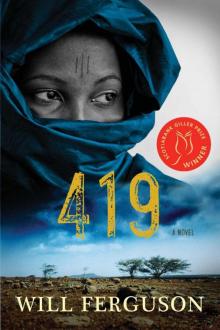
 Skull Session
Skull Session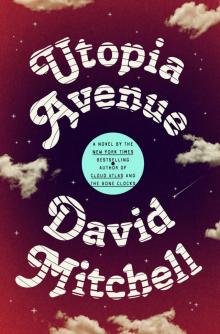 Utopia Avenue
Utopia Avenue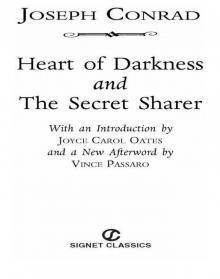 The Heart of Darkness and the Secret Sharer
The Heart of Darkness and the Secret Sharer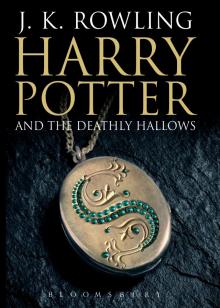 Harry Potter and the Deathly Hallows
Harry Potter and the Deathly Hallows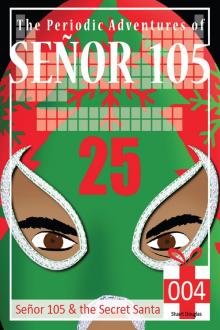 Senor 105 and the Secret Santa
Senor 105 and the Secret Santa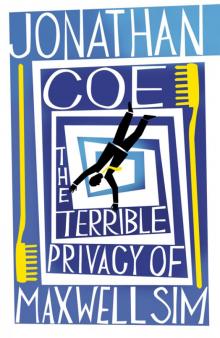 The Terrible Privacy of Maxwell Sim
The Terrible Privacy of Maxwell Sim Riot and Disorder - Orbit the Sun – Part 7
Riot and Disorder - Orbit the Sun – Part 7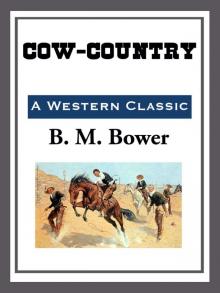 Cow-Country
Cow-Country